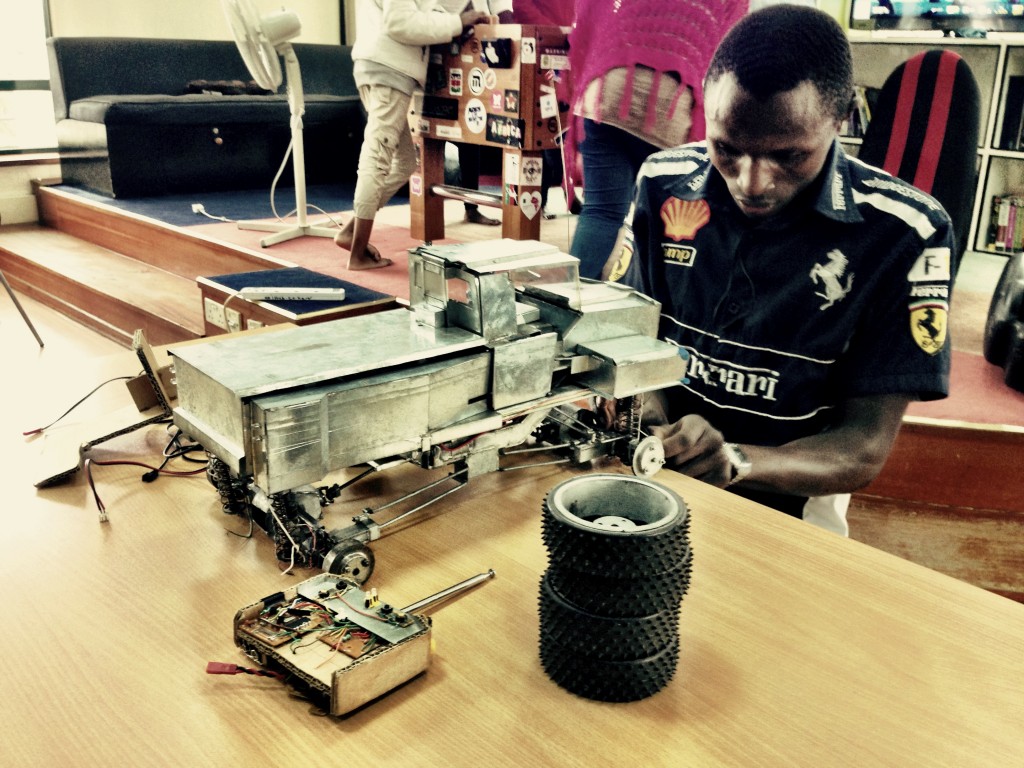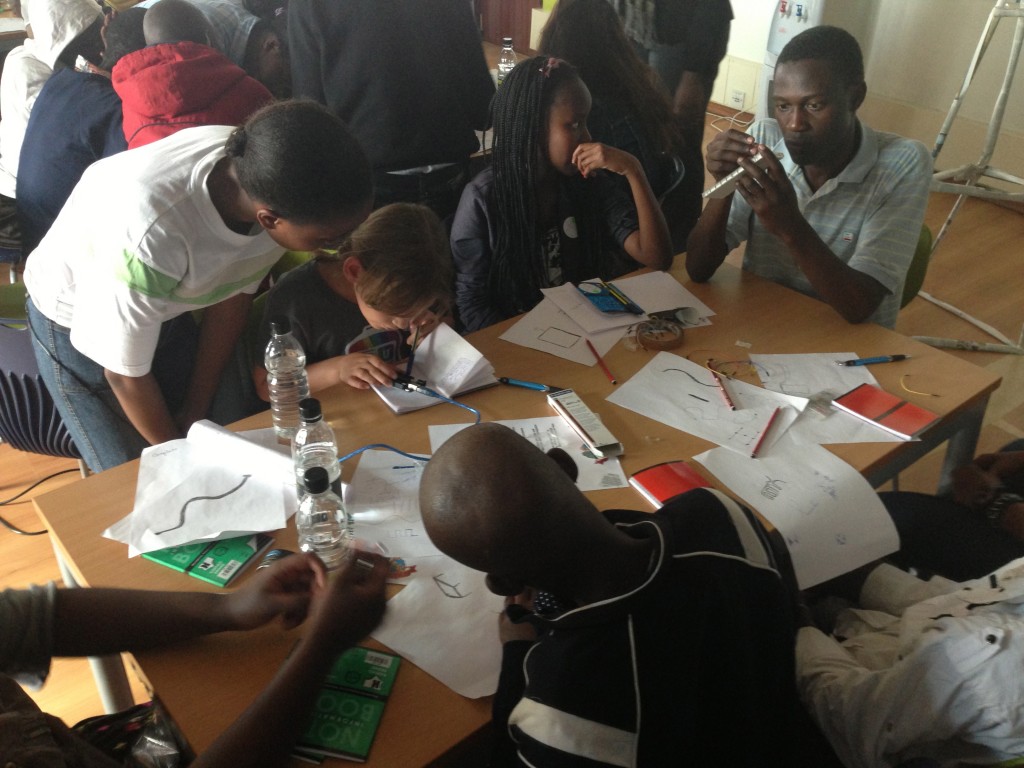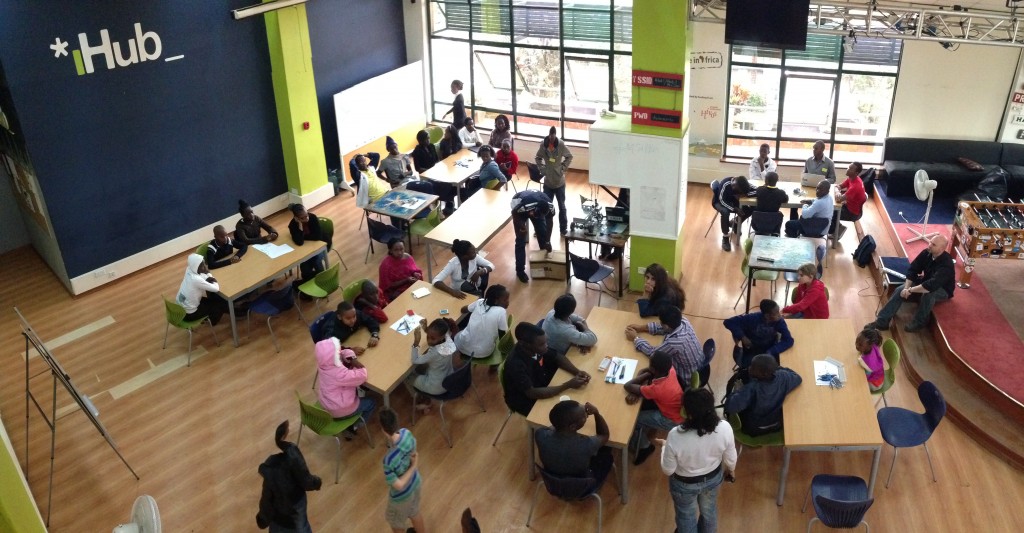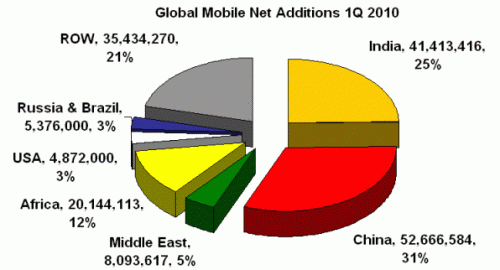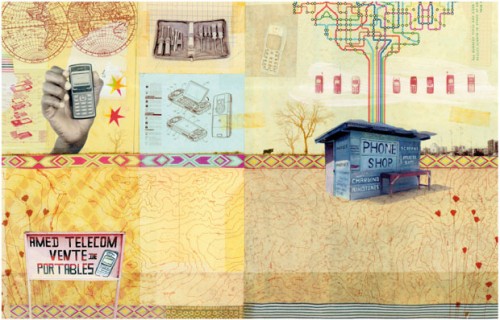As many of you know, I’m the founder of the AfriGadget blog, and one of the organizers for Maker Faire Africa, which happened in Ghana last year and Kenya this year. Though I pretty much only build software apps and services, I’ve got a soft spot for hardware hacking. Last week I put an idea into the website for this month’s Open Innovation Africa Summit taking place upcountry in Kenya, put on by Nokia, infoDev and Capgemini. This is that idea.
I’m enthralled by software, apps and platforms. It’s the low hanging fruit with very few barriers to entry, it’s the place where a great deal of innovation is happening and where money is being made. However, when we look at innovation in Africa, we often overlook the hardware – yes, the handsets, but also the other devices and accessories that local engineers (trained/untrained) can get their hands dirty with. Sometimes this is pure fabrication, other times it’s hacking existing products, many times it’s a mixture of both.
We’re already seeing stories of the way guys are doing everything from creating their own vehicle security systems, home security systems, distance-triggered food preparation and even fish catching alerts. That’s with no support at all. What happens when you provide a space to make it faster, better and possibly an avenue to manufacturers and funders?
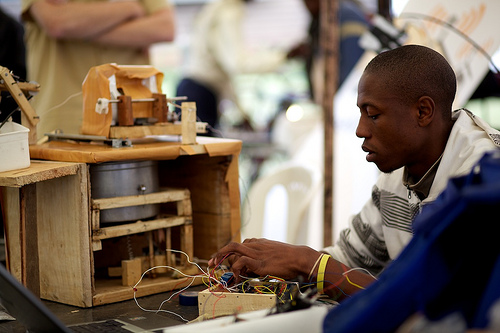
[Image above: a porridge making machine by a Malawian inventor, triggered by an SMS.]
Maker: Simon Kimani from Butterfly Works on Vimeo.
[Video above: Kenyan inventor creates an “SMS House Automation System” where you can give a command via the phone to perform tasks, including turning on/off the TV, Lights.]
Hardware Hacking Garage
Ever since we put up the iHub (Nairobi’s Innovation Hub) this year, I’ve been thinking a lot more about a physical space as its own platform. We deal with the software side of the web and mobile innovation. We don’t have a parallel space for doing the same with hardware. I’m talking about a tinkering, micro-fabrication and engineering environment. This would require some space, basic tools and a few specialized electronics and computers to make it work.
Here are just a few areas (If you have any more ideas, put them in the comments and I’ll add them below):
- Power hacks = using dynamos, solar, hydro and other ideas to hack new power systems that work off the grid and in remote rural regions (made by the people who live there).
- SD cards = digital storage. In fact, provide these with content already on them, including books (libraries), encyclopedias, etc.
- Arduino Boards = an open-source physical computing platform based on a simple input/output board and a development environment that implements the Wiring language.
- DIY Mesh Networks = Adjusting and improving upon ideas like the Village Telco project
- [From Solomon King] – If you’re to explore physical computing, you might need a wide array of sensors for environment management, we’re talking GPS, tilt swtiches, digital gyros, sonar, etc. This stuff is pretty expensive so having a space to play with them (on-site) would be nice.
Physical Space
It’s important that the Hardware Hacking Garage be setup as a centralized resource for the inventor community. Memberships should be available to any inventor, or student, upon application and approval. Many times access to tools and a workshop is all that enterprising inventors, micro-entrepreneurs, and youth, need to create their first innovative project.
For a sustainable approach, this Hardware Hacking Garage could have a store attached, which can serve as a sales and marketing outlet for the devices, inventions and solutions created by the community.
This is an idea that effects everyone across Africa, a space like this is accessible and usable by young and experienced, rural and urban inventors and entrepreneurs. As much as we’d like to pretend that the ideas coming from outside of Africa will be picked up and used, the truth is that the ideas need to come from Africans for themselves and their community. An open Hacking Garage platform is where real hardware innovation for Africa will come from.
 For the last 2 years I’ve wanted to do a camp where we get a bunch of kids together for a fun week of computers and hardware. It finally is happening, this week we have 40 boys and girls, ages 10-16 and from all demographics and types of schools at the iHub. One of them is my daughter, who kept bouncing around excited about it over the weekend, chomping at the bit to get started.
For the last 2 years I’ve wanted to do a camp where we get a bunch of kids together for a fun week of computers and hardware. It finally is happening, this week we have 40 boys and girls, ages 10-16 and from all demographics and types of schools at the iHub. One of them is my daughter, who kept bouncing around excited about it over the weekend, chomping at the bit to get started.